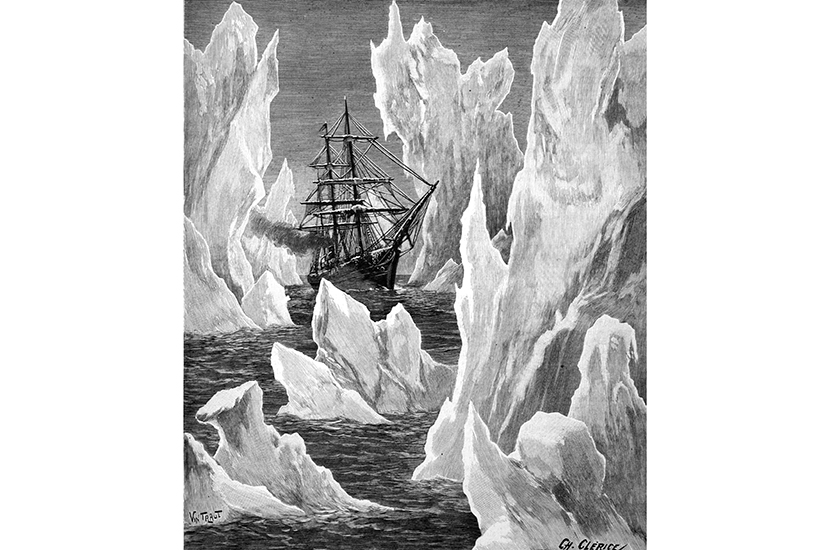The epic story of the Antarctic voyage of the Belgica (1897-9) has all the ingredients of a truly glorious misadventure: an aristocratic expedition commander who carries the pride of a small nation on his shoulders; an eccentric American surgeon who was to become known as one of the greatest frauds in the history of polar exploration; a cantankerous crew, racked by madness, scurvy and mutiny; a desperate sunless polar winter stuck in shifting sea ice that threatens to crush the ship; and finally an escape plan that involves half a ton of explosives and hand-sawing through a mile and a half of sea ice. It is an extraordinary tale of ambition, folly, heroism and survival, superbly told by Julian Sancton, who has rescued the Belgica’s story from relative obscurity and brought it to magnificent life.
The opening quote of the book, by the would-be Everest conqueror George Mallory, sets the scene: ‘Sometimes science is the excuse for exploration. I think it is rarely the reason.’ For the well-born Belgian naval lieutenant Adrien de Gerlache the idea of commanding an expedition to the as-yet unexplored Antarctic was the fulfilment of not just a personal but a national dream. ‘The questions Why me? And why Belgium? do not seem to have occurred to him,’ writes Sancton. ‘Instead he asked himself, Why not me? Why not Belgium?’
Raising enough money for a Belgian polar expedition was not a problem. Two-and-a-half-thousand citizens stepped forward to crowdfund the venture: a schoolteacher gave one franc, a mailman three, a senator 1,000. Concerts, lectures, a cycling competition and hot-air balloon rides were organised. But with the massive support came a burden:
The journey that had lived only in de Gerlache’s mind for many years now lived, too, in the minds of his countrymen, hungry to share in the glory.








Comments
Join the debate for just £1 a month
Be part of the conversation with other Spectator readers by getting your first three months for £3.
UNLOCK ACCESS Just £1 a monthAlready a subscriber? Log in